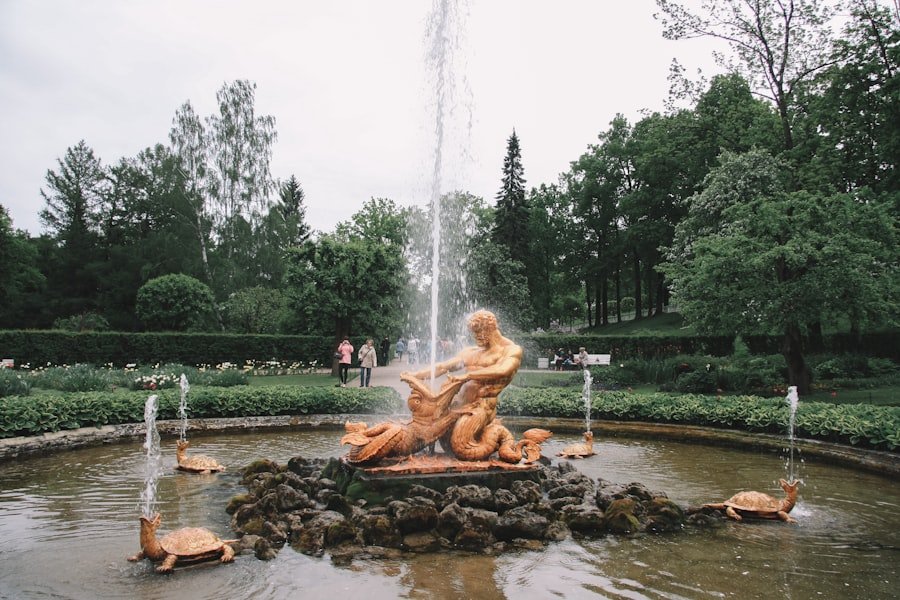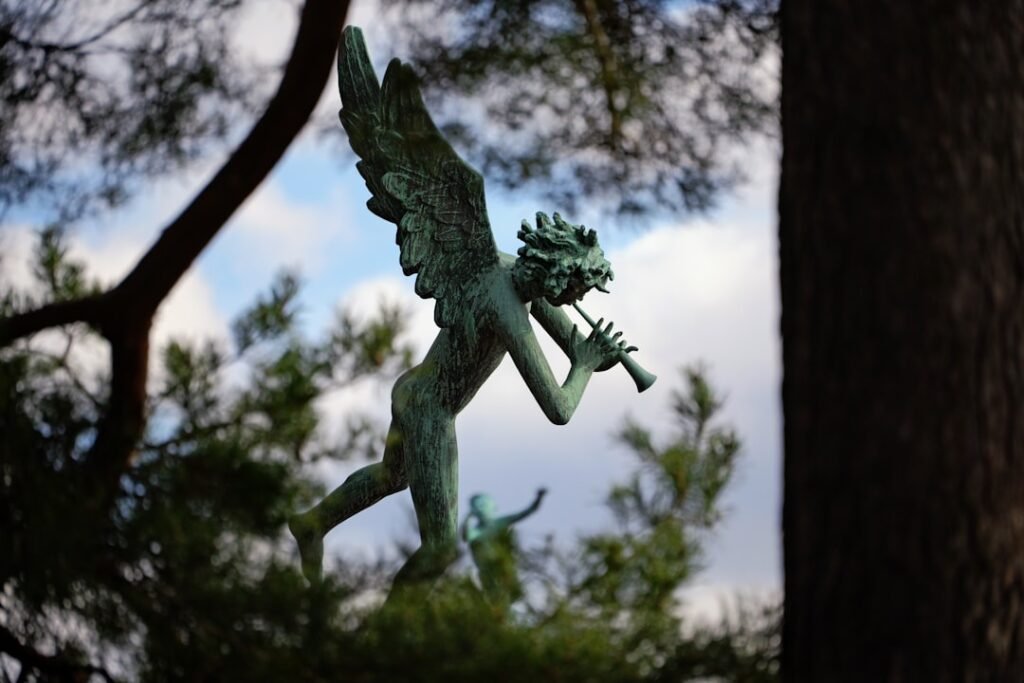Valhalla is a prominent and significant concept in Norse mythology. It is often depicted as a grand hall where fallen warriors are taken after death. Valhalla holds great importance in Norse culture and religion, and its significance can be seen in various aspects of Norse mythology and society. In this article, we will explore the origin and history of Valhalla, the gathering of gods in Valhalla, the architecture and design of Valhalla, the myths and legends associated with Valhalla, the status and meaning of Valhalla, the deities and heroes of Valhalla, the rituals and celebrations of Valhalla, the art and culture inspired by Valhalla, and the legacy and modern interpretations of Valhalla.
摘要
- 瓦尔哈拉是北欧神话中的神殿,由奥丁主持建造。
- 诸神在瓦尔哈拉聚会,享受美酒和美食,进行战斗和竞技。
- 瓦尔哈拉的建筑和设计充满神秘和神奇,如桥梁比夫鲁斯和门神海姆达尔。
- 瓦尔哈拉的神话和传说涉及到众多神祇和英雄,如雷神托尔和战神提尔。
- 瓦尔哈拉在北欧神话中具有重要地位和意义,代表着勇气、荣耀和死亡。
- 瓦尔哈拉的仪式和庆典包括祭祀、宴会和游行等,以纪念英雄和神祇。
- 瓦尔哈拉的艺术和文化表现在绘画、雕塑、音乐和文学等方面,如史诗《诸神的黄昏》。
- 瓦尔哈拉的影响和传承体现在北欧文化、艺术和信仰中,如现代北欧神话文学和电影。
- 瓦尔哈拉的现代诠释和应用包括游戏、电影和主题公园等,如《刺客信条:英灵殿》游戏和迪士尼主题公园的“瓦尔哈拉之旅”。
The Origin and History of Valhalla
The word “Valhalla” is derived from Old Norse, with “Val” meaning “slain warriors” and “halla” meaning “hall.” Valhalla is believed to have originated from ancient Germanic mythology before being incorporated into Norse mythology. In Norse mythology, Valhalla is described as a majestic hall located in Asgard, the realm of the gods. It is said to be ruled by Odin, the chief god of Norse mythology.
Valhalla plays a significant role in Norse mythology as it is believed to be the final resting place for brave warriors who die in battle. These warriors are chosen by Odin himself to join him in Valhalla. The concept of Valhalla evolved over time, with different sources providing varying descriptions of its nature and purpose. In some accounts, it is described as a paradise-like realm where warriors engage in eternal feasting and fighting. In others, it is portrayed as a place where warriors prepare for Ragnarok, the apocalyptic battle that will ultimately lead to the end of the world.
The Gathering of Gods in Valhalla
Valhalla serves as a gathering place for the gods in Norse mythology. It is where they come together to feast and celebrate. The purpose of these gatherings is to honor fallen warriors and to prepare for the final battle of Ragnarok. The feast in Valhalla is known as the Einherjar, which translates to “army of one.” It is a grand celebration where the gods and fallen warriors come together to enjoy food, drink, and entertainment.
The feast in Valhalla holds great significance in Norse mythology. It is believed that the warriors who reside in Valhalla are chosen by Odin himself and are granted immortality. They spend their days training and preparing for Ragnarok, where they will fight alongside the gods against the forces of chaos and destruction. The feast in Valhalla serves as a way for the gods to honor these warriors and to strengthen their bond with them.
The gods who gather in Valhalla each have their own roles and responsibilities. Odin, as the ruler of Valhalla, oversees the proceedings and ensures that everything runs smoothly. Thor, the god of thunder, provides protection and strength to the warriors. Freya, the goddess of love and beauty, brings joy and happiness to the feast. Each god contributes to the overall atmosphere and energy of Valhalla.
The Architecture and Design of Valhalla
Valhalla is described as a magnificent hall with grand architecture and design. It is said to have a roof made of shields and walls adorned with spears. The hall is vast and can accommodate a large number of warriors and gods. The layout of Valhalla is designed to create a sense of unity and camaraderie among its inhabitants.
The materials used in building Valhalla hold symbolic meaning in Norse mythology. The roof made of shields represents protection and strength, while the walls adorned with spears symbolize warfare and battle. These elements reflect the warrior culture of the Norse people and the importance they placed on bravery and honor.
The design of Valhalla also serves a practical purpose. The large hall allows for easy movement and interaction among its inhabitants. The open layout encourages socialization and camaraderie, fostering a sense of unity among the warriors and gods. The architecture of Valhalla is a reflection of the values and beliefs of the Norse people, emphasizing the importance of community and shared experiences.
The Myths and Legends of Valhalla
Valhalla is associated with numerous myths and legends in Norse mythology. One of the most well-known stories is the tale of Ragnarok, the final battle between the gods and the forces of chaos. According to this myth, Valhalla plays a crucial role in preparing for Ragnarok. The warriors who reside in Valhalla are chosen by Odin to fight alongside the gods in this apocalyptic battle.
Another popular myth associated with Valhalla is the story of the Valkyries. These female figures are believed to be Odin’s messengers, tasked with selecting fallen warriors from the battlefield and bringing them to Valhalla. The Valkyries are often depicted as powerful and beautiful beings, embodying both grace and strength.
Valhalla is also mentioned in various sagas and poems from Norse literature. These texts provide further insight into the myths and legends surrounding Valhalla, as well as its significance in Norse culture. The stories associated with Valhalla serve to reinforce the values of bravery, honor, and loyalty that were highly esteemed by the Norse people.
The Status and Meaning of Valhalla

Valhalla holds great importance in Norse society, serving as a symbol of honor, bravery, and glory. It is believed that only the most courageous warriors are chosen to reside in Valhalla after death. This selection process by Odin himself elevates the status of those who are chosen, as it is seen as a great honor to be welcomed into Valhalla.
The meaning of Valhalla for the Norse people goes beyond its role as a final resting place for fallen warriors. It represents the ultimate reward for those who have proven themselves in battle. Valhalla is a place of eternal feasting, fighting, and camaraderie, where warriors can continue to prove their worth and prepare for the final battle of Ragnarok.
Valhalla also holds religious significance for the Norse people. It is believed to be a realm connected to the gods, where mortals can aspire to join them after death. The concept of Valhalla reinforces the Norse belief in an afterlife and provides comfort and reassurance to those who follow the warrior path.
The Deities and Heroes of Valhalla
Valhalla is closely associated with several gods and goddesses in Norse mythology. Odin, as the ruler of Valhalla, plays a central role in its mythology. He is responsible for selecting fallen warriors to join him in Valhalla and preparing them for Ragnarok. Odin is often depicted as a wise and powerful figure, embodying the qualities valued by the Norse people.
Other gods and goddesses also have connections to Valhalla. Thor, the god of thunder, is often depicted as a protector of the warriors in Valhalla. Freya, the goddess of love and beauty, brings joy and happiness to the feast in Valhalla. These deities contribute to the overall atmosphere and energy of Valhalla, ensuring that it remains a place of honor and celebration.
Valhalla is also home to numerous heroes and warriors who have achieved great feats in battle. These figures are highly revered in Norse mythology and are seen as role models for bravery and honor. They serve as inspiration for mortals who aspire to join them in Valhalla after death.
The Rituals and Celebrations of Valhalla
Valhalla is associated with various rituals and celebrations in Norse culture. The feast in Valhalla, known as the Einherjar, is one of the most important celebrations. It is a grand event where the gods and fallen warriors come together to enjoy food, drink, and entertainment. The feast serves as a way for the gods to honor the fallen warriors and to strengthen their bond with them.
Other rituals associated with Valhalla include ceremonies to honor fallen warriors and to prepare them for their journey to Valhalla. These rituals often involve offerings and sacrifices to the gods, as well as prayers and chants. They serve as a way for the Norse people to show their respect and gratitude to those who have sacrificed their lives in battle.
Valhalla also plays a role in Norse festivals and holidays. It is often celebrated during events such as Yule, the winter solstice festival, where feasts and gatherings are held to honor the gods and fallen warriors. These celebrations serve as a way for the Norse people to come together as a community and to reaffirm their beliefs and values.
The Art and Culture of Valhalla
Valhalla has inspired numerous works of art and literature in Norse culture. It is a recurring theme in Norse sagas, poems, and songs, where it is depicted as a grand and majestic hall. These works of literature serve to reinforce the myths and legends associated with Valhalla, as well as its significance in Norse culture.
Valhalla has also influenced Norse art, particularly in the depiction of warriors and battle scenes. It is often portrayed as a place of glory and honor, where warriors engage in eternal feasting and fighting. These artistic representations serve to inspire and motivate the Norse people, reminding them of the values they hold dear.
The cultural significance of Valhalla can be seen in various aspects of Norse society. It is often referenced in everyday life, from personal names to place names. Valhalla is deeply ingrained in Norse culture, serving as a symbol of bravery, honor, and glory.
The Legacy and Modern Interpretations of Valhalla
Valhalla continues to have a significant influence on modern culture. It is often depicted in popular media, such as books, movies, and video games, where it is portrayed as a mythical and awe-inspiring realm. These modern interpretations of Valhalla serve to keep the mythology alive and to introduce it to new audiences.
Valhalla has also influenced various aspects of modern society. Its emphasis on bravery, honor, and loyalty continues to resonate with people today. The concept of Valhalla serves as a reminder of the importance of these values and their enduring relevance in our lives.
The legacy of Valhalla can be seen in the continued fascination with Norse mythology and culture. It has become a symbol of Norse identity and heritage, with many people embracing the mythology and incorporating it into their lives. Valhalla serves as a source of inspiration and pride for those who identify with Norse culture.
In conclusion, Valhalla holds great significance in Norse mythology and culture. It is a grand hall where fallen warriors are taken after death, serving as a gathering place for the gods and a symbol of honor and glory. Valhalla has evolved over time, with different sources providing varying descriptions of its nature and purpose.
The gathering of gods in Valhalla serves to honor fallen warriors and to prepare for the final battle of Ragnarok. The architecture and design of Valhalla reflect the values and beliefs of the Norse people, emphasizing the importance of bravery, honor, and community. The myths and legends associated with Valhalla reinforce these values and provide inspiration for mortals who aspire to join the warriors in Valhalla.
Valhalla holds religious significance for the Norse people, providing comfort and reassurance in the belief in an afterlife. It has influenced various aspects of Norse society, from rituals and celebrations to art and literature. Valhalla continues to have a lasting legacy in modern culture, serving as a symbol of bravery, honor, and pride. The enduring significance of Valhalla in Norse mythology and culture is a testament to its enduring power and influence.
请点击这里阅读一篇与瓦尔哈拉相关的文章。
FAQs
什么是瓦尔哈拉(Valhalla)?
瓦尔哈拉是北欧神话中的一个地方,被认为是战士们在死后的归宿。它是由诸神之王奥丁所统治的神秘之地。
瓦尔哈拉的意义是什么?
瓦尔哈拉被认为是勇敢战士的天堂,只有在战斗中死去的人才能进入这个地方。在那里,他们可以享受无尽的美酒和美食,并与其他勇敢的战士一起战斗。
瓦尔哈拉的历史是什么?
瓦尔哈拉的历史可以追溯到古代北欧人的时代。在那个时候,人们相信死后会进入一个神秘的地方,与神灵一起生活。瓦尔哈拉是其中最著名的一个地方,被认为是勇敢战士的归宿。
瓦尔哈拉在现代文化中的影响是什么?
瓦尔哈拉在现代文化中有着广泛的影响。它经常出现在电影、电视剧、小说和游戏中,成为了一个受欢迎的文化符号。此外,瓦尔哈拉也被用作各种品牌和产品的名称。
瓦尔哈拉和其他神话中的天堂有什么不同?
瓦尔哈拉和其他神话中的天堂有所不同,因为它是一个专门为勇敢战士准备的地方。只有在战斗中死去的人才能进入瓦尔哈拉,而其他天堂则对所有人开放。

